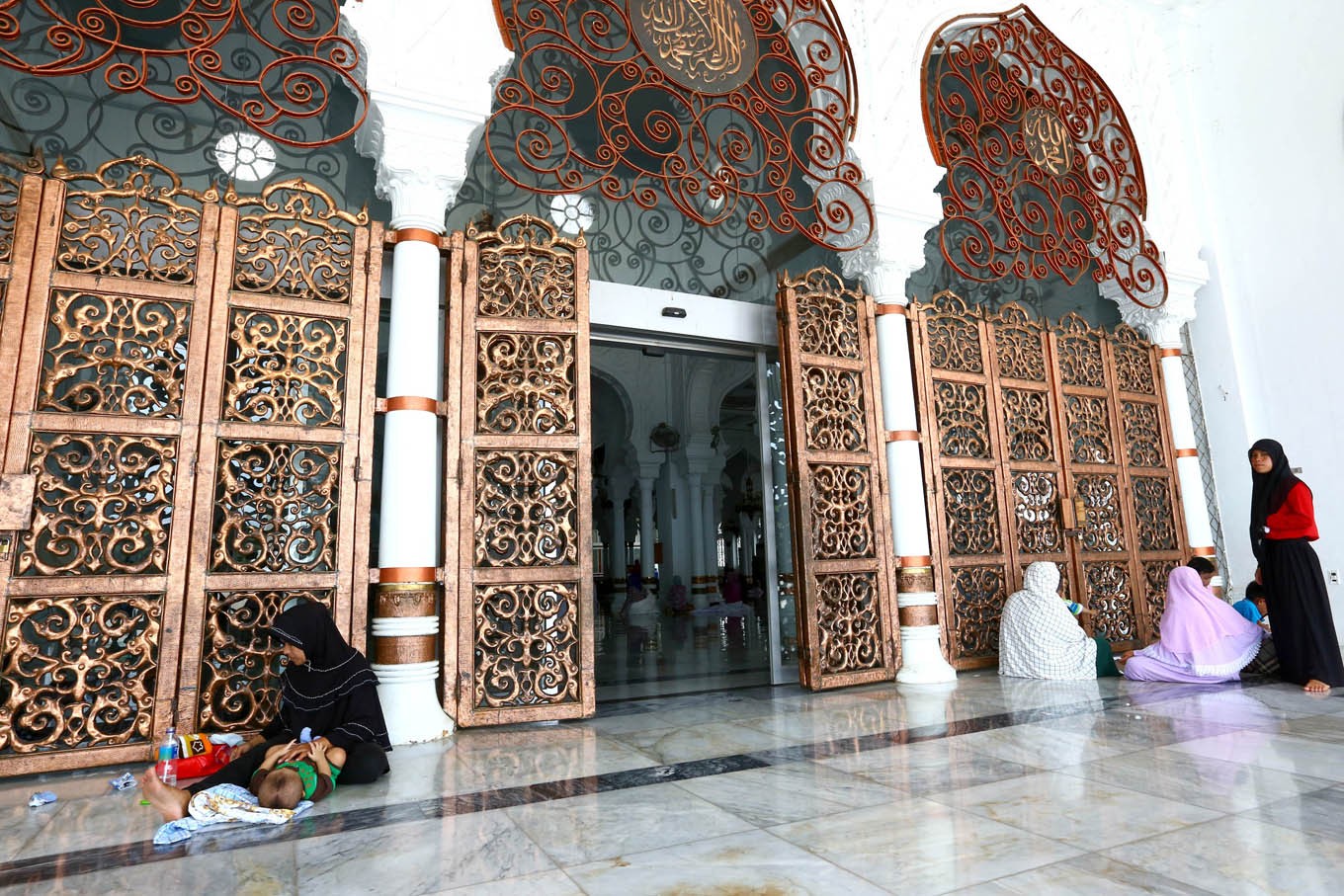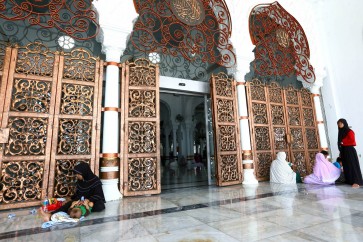Popular Reads
Top Results
Can't find what you're looking for?
View all search resultsPopular Reads
Top Results
Can't find what you're looking for?
View all search resultsMore to obtain sharia certification amid halal lifestyle boom
At least 10 hospitals are in the process of obtaining sharia certification as Muslims increasingly want services and products aligned with Islamic principles.
Change text size
Gift Premium Articles
to Anyone
 Four women linger after engaging in Dhuhur ritual prayers in Baiturahman Mosque, Nanggroe Aceh Darusallam. Demand for sharia certification is on the rise as businesses, including hospitals, adjust to the Islamic lifestyle increasingly adopted by Muslims in Indonesia, an official at the National Sharia Board of the Indonesian Ulema Council has said. (The Jakarta Post/Wienda Parwitasari)
Four women linger after engaging in Dhuhur ritual prayers in Baiturahman Mosque, Nanggroe Aceh Darusallam. Demand for sharia certification is on the rise as businesses, including hospitals, adjust to the Islamic lifestyle increasingly adopted by Muslims in Indonesia, an official at the National Sharia Board of the Indonesian Ulema Council has said. (The Jakarta Post/Wienda Parwitasari)
D
emand for sharia certification is on the rise as businesses, including hospitals, adjust to the Islamic lifestyle increasingly being adopted by Muslims in Indonesia, an official at the National Sharia Board of the Indonesian Ulema Council (DSN-MUI) has said.
The head of DSN-MUI's sharia business and economy department, Moch. Bukhori Muslim, said that at least 10 hospitals were in the process of obtaining sharia certification as Muslims increasingly want services and products aligned with Islamic principles.
"There is increasing demand from people who want to adopt the halal lifestyle, so there should be [authorities] who set up the standards. According to Kyai [religious teacher] Ma'ruf Amin, our sharia standards for hospitals are the foremost in the world," Bukhori told The Jakarta Post recently, quoting the vice-president-elect who is also chairman of the board.
The DSN-MUI is tasked with issuing edicts surrounding sharia-compliant products and services, as well as issuing sharia certifications to institutions, while monitoring their implementation. Initially established to regulate the financial sector, the board has in recent years started providing guidelines for the health and tourism sectors.
Sharia certification for hospitals, which started in 2016, has sparked debate lately after a Twitter user brought to public attention a sharia-certified public hospital in Tangerang, Banten. Criticisms arose since the hospital is public. It is owned by the government and hence should not lean toward a certain religion, some argued.
The board has certified two other public hospitals, Dr. Zainoel Abidin and Meuraxa Kota Banda Aceh, both in Aceh, alongside 13 privately owned hospitals across the country. Bukhori said another public hospital in Kalimantan might be seeking certification as well, adding that such certification could give added value to the hospitals regardless of their ownership.
"The added values are in terms of the protected rights of patients and workers, as well as of their spiritual needs, not only for Muslims, but also those of other religions," he said.

















